
Copyright © 2024 · OurPublicRecords.org · All Rights Reserved

Free New Jersey Unclaimed Money Lookup
We receive referral fees from partners (advertising disclosure)
The information we provide you is free of charge and a result of extensive research by our home warranty experts. We use affiliate links on our site that provide us with referral commissions. While this fact may not influence the information we provide, it may affect the positioning of this information.
The information we provide you is free of charge and a result of extensive research by our home warranty experts. We use affiliate links on our site that provide us with referral commissions. While this fact may not influence the information we provide, it may affect the positioning of this information.

See what New Jersey does with unclaimed property and how owners can claim it in our guide to the Garden State.
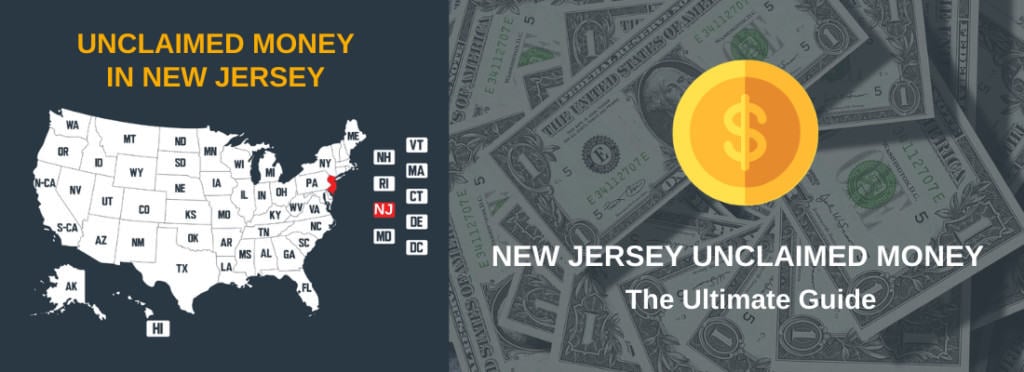

If you lost a $100 bill when walking down the street in New Jersey, you would likely spend some time looking for it. You may not realize that the state has millions of dollars of unclaimed property available for those willing to look for it. When the legal holder has property that the owner didn’t claim or use for a specific period of time, it will transfer the property to the New Jersey Treasury. The treasury will then send it to the Unclaimed Property Administration, which places in the online database.
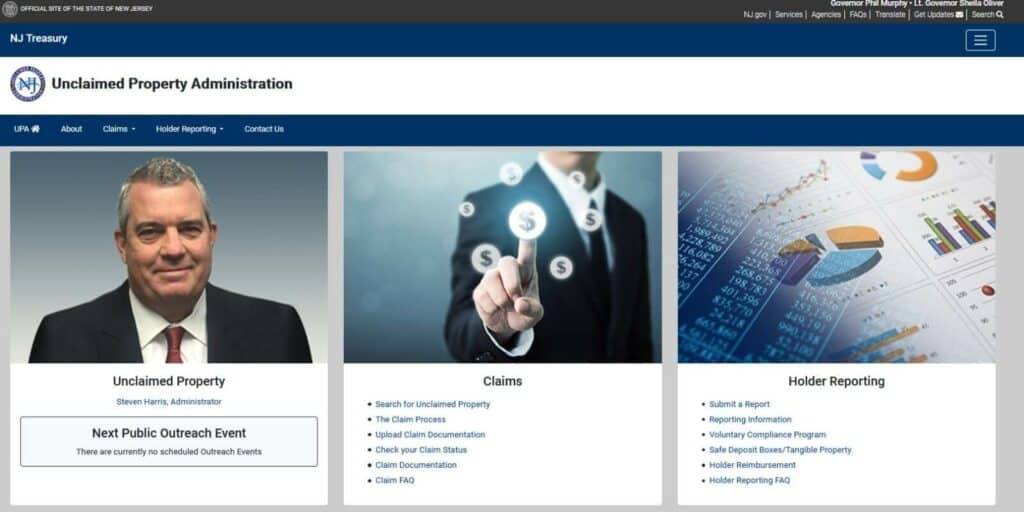
When you find any type of property in the NJ database that lists your name as the owner, you can go through the system and get it back. You’ll usually receive a check from the administration, which you can deposit into a new bank account or check. Our ultimate guide to unclaimed money in New Jersey will go over what types of property the state holds and how to use the claim process to get your money.
The Unclaimed Property Administration in New Jersey will hold any type of property or asset turned over by a holder. Holders often include insurers who write and create policies for others along with banks. You may want to search for a bank account that you once had because you lost it. This can happen if you only used the account for a specific reason such as paying certain bills. There are also accounts owned by people who set them up to get direct deposits from their employers and stopped using them when they left those jobs.
Property only appears in the New Jersey database when holders attempt to track down owners and cannot find them. You might find checks that your employer tried to send you when you changed jobs or moved to a new address. Though most employers will send your final check to you, you may not get it if you moved before they mailed it.
Not only can you look for lost wages, but you can search for expense checks, too. Don’t forget that you might have a check from an employer who settled a lawsuit with you and other former workers.
Insurance checks are also available in the database. Did you file a claim on your home policy after Hurricane Sandy or another natural disaster? Search for checks that the mail system lost during the weeks after that disaster. Insurance checks can include funds awarded to you as the designated beneficiary of a policy. A close friend or family member might decide to give you the proceeds of the policy and not tell you. If they didn’t update your contact information, the insurer may have trouble finding your current address and let the state take the money.
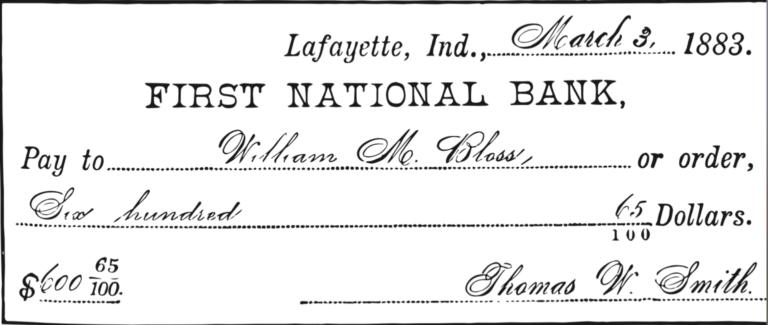
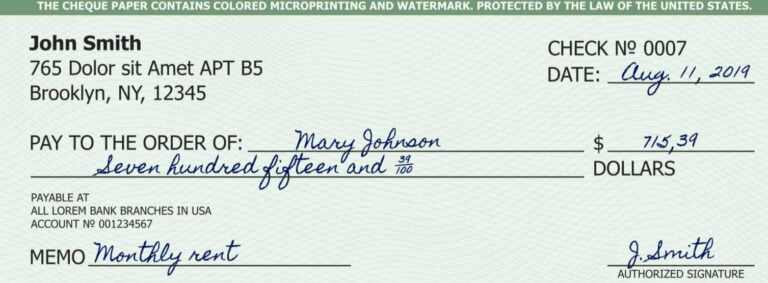
New Jersey makes it easy for you to find deposits that you never got back, too. Have you ever put down money to rent an apartment or have water service in your home? You may need a deposit before getting gas or power turned on at your new address. Landlords must place your deposit in a safe account and hold it until you move. Though they can take some money to cover the damage that you did, they need to send you a check for the money leftover along with a list of the money they took. Any deposits owed to you should show up in the NJ database.

The NJ Unclaimed Property Administration offers an online database that helps you find any unclaimed money that belongs to you. We’ll show you the best and easiest ways to claim your money in our step-by-step guide.
Step 1: Visit the NJ Unclaimed Property Administration website. Look for the box labeled “Claims” and click on the “Search for Unclaimed Property” button.
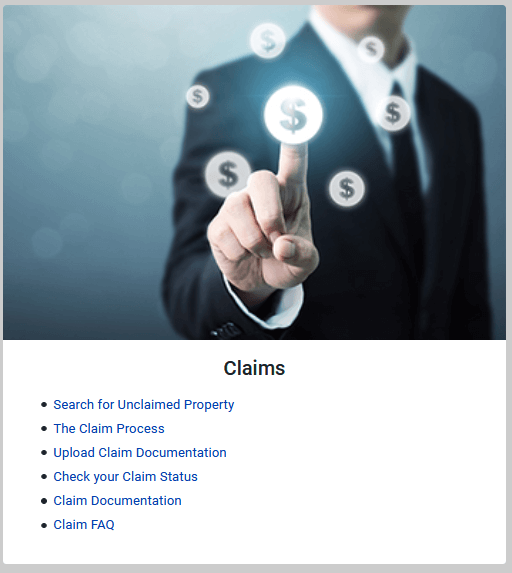
Step 2: Use your last name in the search box to search for property listed under your name. You can use this box with the name of your business to search for assets that your business owned/owns.
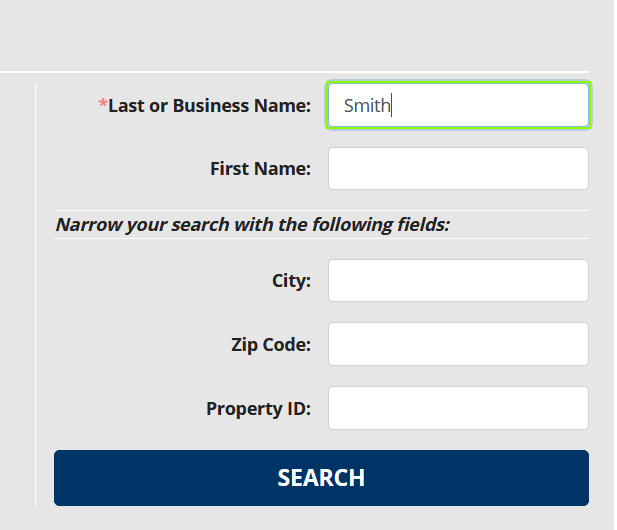
Step 3: View the assets that the NJ database lists to what you can claim. In addition to the owner’s name and the name of the co-owner, if the asset has one, the database shows you the address of the owner and the property ID. To file a claim for yourself, you need to have proof that you lived at the address shown on the asset and have the same name.
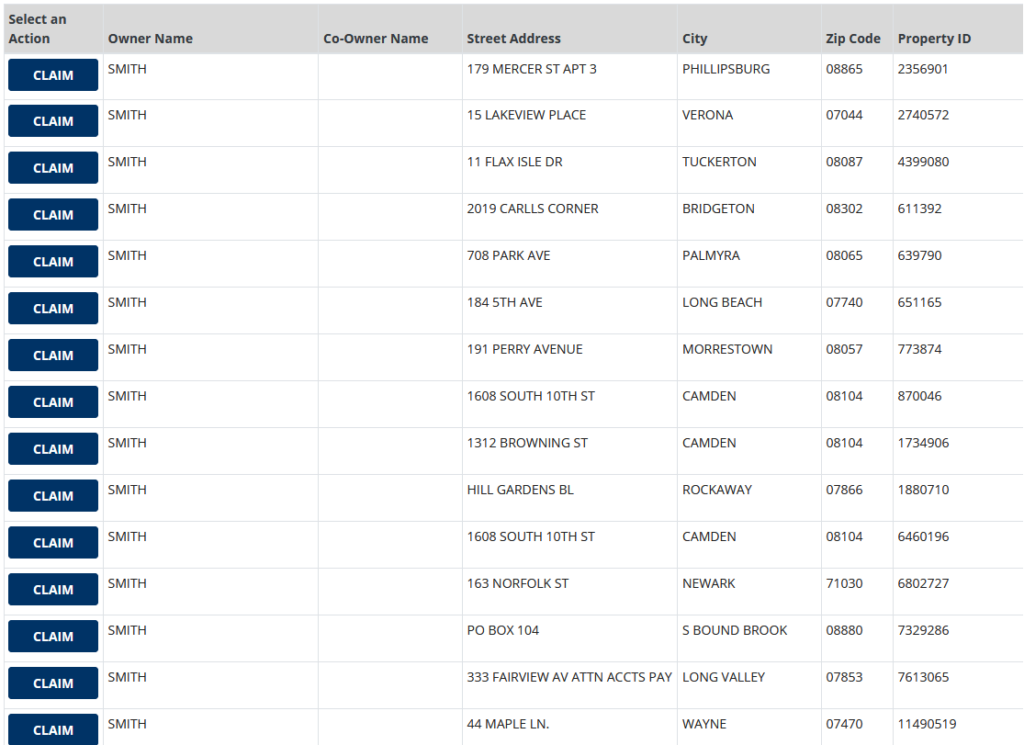
Step 4: Look for the blue “Claim” buttons located on the column on the left. When you decide to claim property, click on this button. You may want to look through all the assets to file all of your claims at once. If you click on the wrong asset, you can click it a second time to remove it. You also need to click another “Claim Property” button to view your claim.
Step 5: Confirm that the information listed on the NJ claims is correct. You also need to use the claimant relationship menu to show that you are the property owner or that you want to claim it for another reason.

New Jersey gives you the legal right to claim property if you aren’t the owner for several reasons. The most common reason to claim property is that you’re an heir. This option is available for anyone who has a rightful claim to the deceased’s property. The legal representative option allows anyone named as a legal rep the right to file such as someone who has the power of attorney papers or the guardian of a child. You can also file claims in New Jersey as the owner of a business.
The Garden State is one of the few states in the nation to let creditors file claims, too. A creditor has the right to file a lawsuit in court to recover money that belongs to them. The court may grant them an order that allows them to claim property that belongs to someone else to cover the debt. A creditor must contact you and let you know that they can and will take the property before moving forward.
Filing a claim for unclaimed property in New Jersey is easy. We’ll go over the top steps to help you.
Step 1: Enter all of your current information in the boxes on the page after you complete the initial claim. New Jersey requires your current home address and full name. You also need to add your email address and show how you heard about the site.
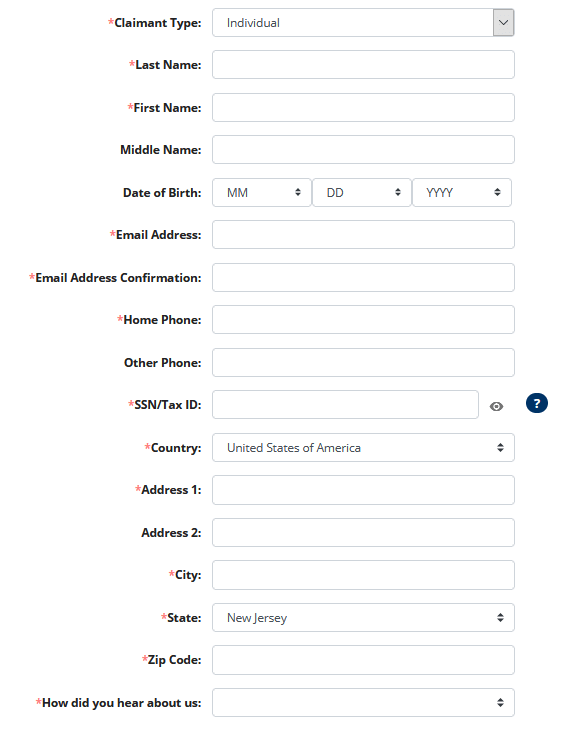
Step 2: Look over the information that you entered to find any possible mistakes. You can then click on the “Claim” button.

Step 3: Preview your NJ claim and verify that it has all the information that you want to share. You will then submit it to the NJ Unclaimed Property Administration, which will email you with all the documents that you need to file.
Step 4: Follow the link in your email or use this site to upload your documents. You can look over what documents and images the site will accept. NJ asks for the property ID and your email address.
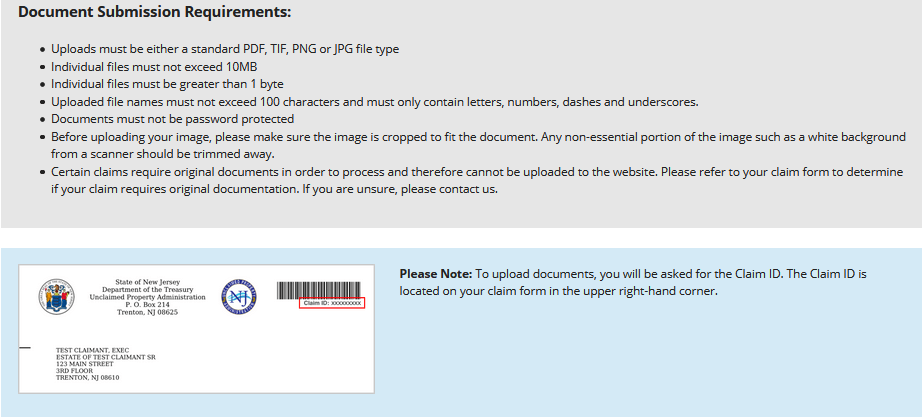
Step 5: Click on the blue “Add Document” button to search your computer for the document that you want to upload. Once you finish adding all of your documents, click on the “Submit” button to send your claim to the NJ Unclaimed Property Administration.
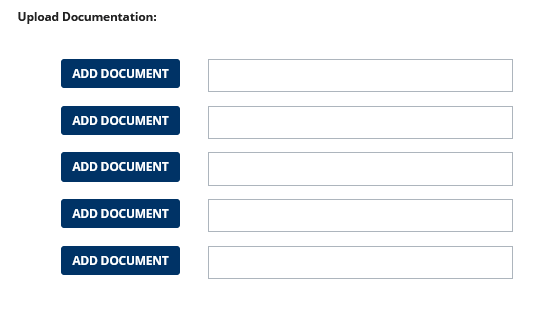
Though the NJ Unclaimed Property Administration is the best place to look for assets in the Garden State, we recommend checking with sites such as the Federal Deposit Insurance Corporation. The FDIC serves as an insurer for banks to guarantee that those who open accounts with those institutions can retrieve their money. It offers resources and information on closed banks as well. If you use credit unions rather than banks, check with the National Credit Union Administration. It has information available on credit unions that closed down while still holding money for others.
You may want to look for pensions and retirement accounts on the web, too. Many institutions and organizations allow individuals to designate people who will inherit their accounts. The U.S. Railroad Retirement Board is helpful for tracking accounts owned by railroad workers. For all other types of pensions, turn to the Pension Benefit Guaranty Corporation. As long as you know the full name of the person who opened the pension, you can find out if the money is still available through the site.
Some other websites worth looking at include:
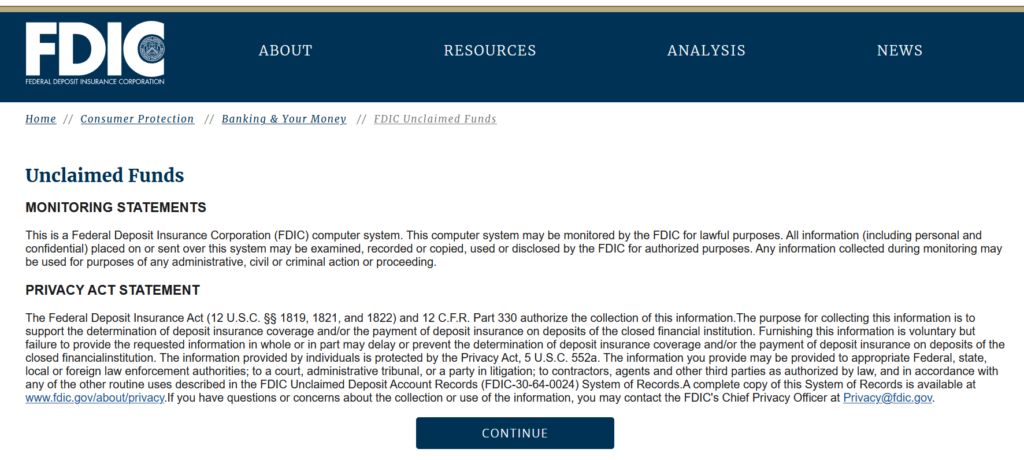
If you file in New Jersey as a property owner, you need a minimum of a photo ID such as your passport or driver’s license. You also need your social security card or an official document that lists your number as well as proof of your current home address. New Jersey will accept a utility bill or a recent bank statement. For claims that list multiple owners, you must submit this information for each owner.
You need the same information and documents when filing a claim as an heir along with documents that show the information of the deceased. New Jersey requires a copy of the death certificate and will accept those issued by other states. The certificate should show the name and address of the deceased. You also need to provide proof that you have a right to the property as the deceased’s heir such as a copy of your birth certificate.
New Jersey does not tell the public how much money the Unclaimed Property Administration holds. If you searched other state databases in the past, you likely noticed that they listed the amount of each asset. New Jersey will not show you the value of a property until you file your claim. Some estimate that the state has more than $50 million in unclaimed assets. All the states combined list more than $40 billion in assets.
Thanks to the online statutes, you can now view all the unclaimed property laws in New Jersey and focus on those that relate to your claim. We recommend going over all the laws that might play a role in how you file.
New Jersey requires that the holders of safe deposit boxes report all abandoned boxes by November first each year. The holder must retain the box for five years after receiving the last rental payment before informing the administration. New Jersey requires that holders inventory the contents of all boxes and keep the contents separate from other boxes. The holder must also keep the box safe until the administration decides what to do next. You often have the right to claim the box and all valuable items inside it if you can afford to pay all the costs the bank incurred as the holder.
Though New Jersey lets you file claims for property that uses your old name, you need to provide documents that show why your name is different. A good choice is a marriage certificate that shows your old name and lists the last name of your spouse. A divorce decree that shows you once had that name but reverted to your former name can also help. New Jersey will accept a court order if you went through the legal process of changing your name.
You do not need to worry that the Unclaimed Property Administration might take your unclaimed property. The state guarantees that it will hold onto any property that it receives until it either locates the owner or the owner files a claim. In the case of people who passed away, their heirs can file claims for the property. New Jersey is one of a small handful of states that will not sell the abandoned property at auction, too. This lets you rest assured that your family heirlooms won’t go on the auction block if a loved one abandons a safe deposit box.
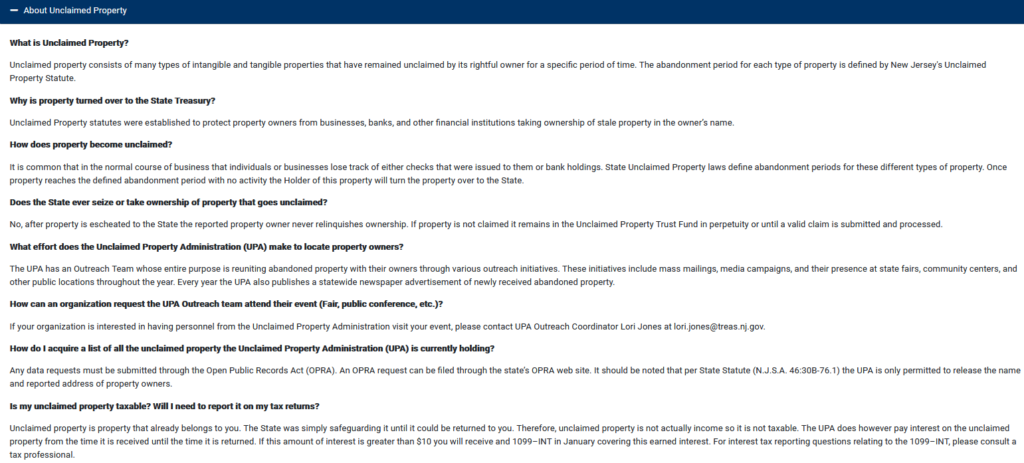
The New Jersey Unclaimed Property Administration created the Outreach Team to reach people who may not know about the online database. They create media campaigns that run on television and radio to tell people about the system in addition to sending out mass mailings to all addresses in the Garden State. The team also attends various events every year where locals can learn about the database and search it. You will also see a new listing come out annually that lists all new owners added to the system.
You might search the New Jersey database for property that you know belongs to you that isn’t listed. The database does not list any property with a value of $10 or less. You will also find that you cannot search for property that you owned or lost while living in a different state. Let’s say that you lived in New York and opened a bank account before moving to New Jersey. You should search the New York database to find your money. New Jersey will only list assets owned by those residing in the Garden State.
New Jersey can take up to eight weeks to process your claim after you complete all the online steps. During the busy season, the NJ Unclaimed Property Administration can take even longer. Your process time will take longer if you forget to submit any documents, too. The New Jersey claim status checker helps you see how long the entire process will take along with whether you need to provide more documents.

In most cases, New Jersey does not charge taxes on your property or require that you pay any fees. If you have tangible property such as stocks and bonds that earn money after you abandon them, you may need to pay taxes on what you earned. The Garden State will issue tax forms near the end of January that show what you owe to the state as well as the federal government.
You might consider working with a NJ fee finder, especially if you get a letter from one that says they found unclaimed money for you. A fee finder allows you to fill out a form and get a check later. The biggest reason to avoid fee finder is that many are scams. They may use the information that you provide to open accounts in your name or steal your identity. New Jersey has laws about what fee finders can do and how much they charge. Before you agree to work with one, make sure that you read through those laws. Fee finders cannot do anything that you can’t do on your own.
Learning how to protect all the assets that you own is the best way to ensure that the NJ Unclaimed Property Administration doesn’t end up with them. We recommend annual audits along with apps that keep track of your information. An annual audit lets you make sure that you have access to all of your assets and that the holders didn’t identify them as dormant or abandoned. The right app allows you to log in once and update all of your contact information and view your accounts.
New Jersey launched the Unclaimed Property Administration to help the state government give assets back to the owners. The administration created a website that is easy to use and gives you some general information about the assets that you find. You can use the system to both find claims and upload documents to retrieve your property. It also lets you check on your claim after you file and find information on how to file for others. Once you use the steps in our ultimate guide to unclaimed money in New Jersey, you may want to search for assets in the 49 other states.
Disclaimer: OurPublicRecords mission is to give people easy and affordable access to public record information, but OurPublicRecords does not provide private investigator services or consumer reports, and is not a consumer reporting agency per the Fair Credit Reporting Act. You may not use our site or service or the information provided to make decisions about employment, admission, consumer credit, insurance, tenant screening, or any other purpose that would require FCRA compliance.

Copyright © 2024 · OurPublicRecords.org · All Rights Reserved